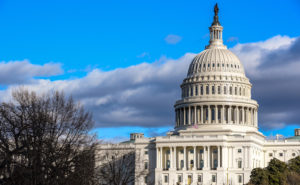To End Science Denial, Admit That Policymaking Is Not All Science
Failing to recognize the importance of value judgments in policymaking encourages anti-science attitudes.
Basic Foundations of the Administrative State
Administrative law makes the modern state compatible with principles of the rule of law.
What Does Risk-Based Regulation Mean?
Risk-based regulation requires regulators to choose which decision-making principles to apply.
Considering Cumulative Regulatory Costs in Economic Analysis
The latest Economic Report of the President highlights the importance of studying cumulative regulatory costs.
Which of Trump’s Regulatory Reforms Are Likely to Last?
In its novel effort to bring independent agency regulations under White House oversight, the Trump Administration may have found a lasting legacy.
Building Capacity for Economic Analysis at Independent Agencies
Independent agencies should take steps to conduct more thorough economic analysis when writing regulations.
Dissecting the Debate Over Regulation
Commentators debate central questions about the role of regulations in society.
How Regulatory Agencies Undervalue Life
Agencies should boost penalties for fatal rule violations to match the value of a statistical life.
Regulating Cost-Benefit Analysis
EPA’s advance notice raises fundamental questions about how the agency should weigh costs and benefits.
A Recipe for Improving Regulatory Analysis
President Trump’s first year in office prompts four steps for reform.
How Regulators Can Excel
Contributors to a new book outline the prerequisites for success by regulatory agencies.
What the FDA Can Teach Us About Regulatory Excellence
Scholar discusses the role of policy learning and reputation in regulatory excellence.












